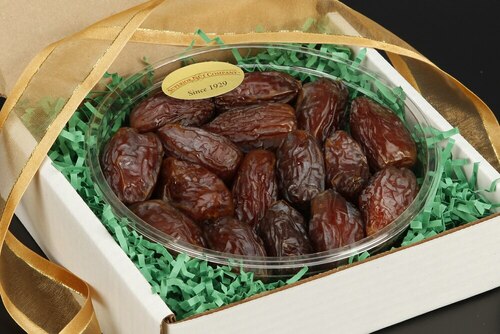Kurma Importir: Import and Export in Malaysia

Introduction
Dates are a beloved fruit, known for their sweet taste and numerous health benefits. In Malaysia, as a Kurma Importir (dates importer), it is essential to understand the specific regulations and import/export requirements for dates. Navigating the legal framework and complying with the necessary procedures ensures a smooth and compliant import/export experience. In this article, we will delve into the world of dates importer and explore the regulations and requirements for importing and exporting dates in Malaysia.
Let’s Discover the specific regulations and import/export requirements for dates in Malaysia. Gain insights into the legal framework and procedures involved in the date trade to ensure a smooth and compliant import/export experience.
Importing Dates to Malaysia
Importing dates into Malaysia involves several key considerations and regulatory requirements. Let’s explore the process and essential aspects of importing dates:
1. Customs Procedures
Importers must adhere to the customs procedures established by the Royal Malaysian Customs Department. This includes registering as an importer, obtaining an import license, and understanding the relevant import duties, taxes, and fees.
2. Import Restrictions
Certain restrictions and regulations may apply to the importation of dates. It is crucial for importers to be aware of any specific restrictions, such as phytosanitary requirements, labeling regulations, and quality standards, to ensure compliance with the relevant authorities.
3. Documentation
Importers must prepare and submit the necessary documentation for customs clearance. This typically includes a commercial invoice, packing list, bill of lading or airway bill, import permit, and any additional certificates or documents required by the relevant government agencies.
4. Phytosanitary Certificates
Importing plant-based products, including dates, may require a phytosanitary certificate issued by the exporting country’s plant protection authority. This certificate verifies that the imported dates are free from pests and diseases and comply with the phytosanitary regulations of both the exporting and importing countries.
Exporting Dates from Malaysia
For those involved in exporting dates from Malaysia, certain requirements and procedures must be followed. Here are the key aspects to consider when exporting dates:
1. Export Licensing
Exporters must obtain the necessary licenses and permits from the relevant government agencies, such as the Malaysian Palm Oil Board (MPOB) or the Ministry of Agriculture and Food Industries (MAFI), depending on the type of dates being exported.
2. Compliance with Importing Country’s Regulations
Exporters need to ensure that the dates they export comply with the regulations and requirements of the importing country. This may include meeting quality standards, adhering to labeling and packaging requirements, and obtaining any necessary export certificates or documents.
3. Documentation
Exporters must prepare and provide the required documentation for exporting dates. This typically includes a commercial invoice, packing list, bill of lading or airway bill, export permit, phytosanitary certificate, and any other relevant certificates or documents as required by the importing country.
4. Market Research
Exporters should conduct thorough market research to identify potential export markets, understand market demand and preferences, and establish relationships with potential buyers or distributors. This helps ensure a successful and profitable export venture.
Conclusion
As a Kurma Importir, understanding the regulations and import/export requirements for dates in Malaysia is crucial to ensure a compliant and efficient trade process. Importers must navigate customs procedures, import restrictions, and necessary documentation, while exporters need to adhere to export licensing, comply with importing country regulations, and prepare the required documentation. By staying informed and following the legal framework, dates importer can engage in a successful and sustainable date trade, contributing to the growth of the industry and meeting consumer demand.